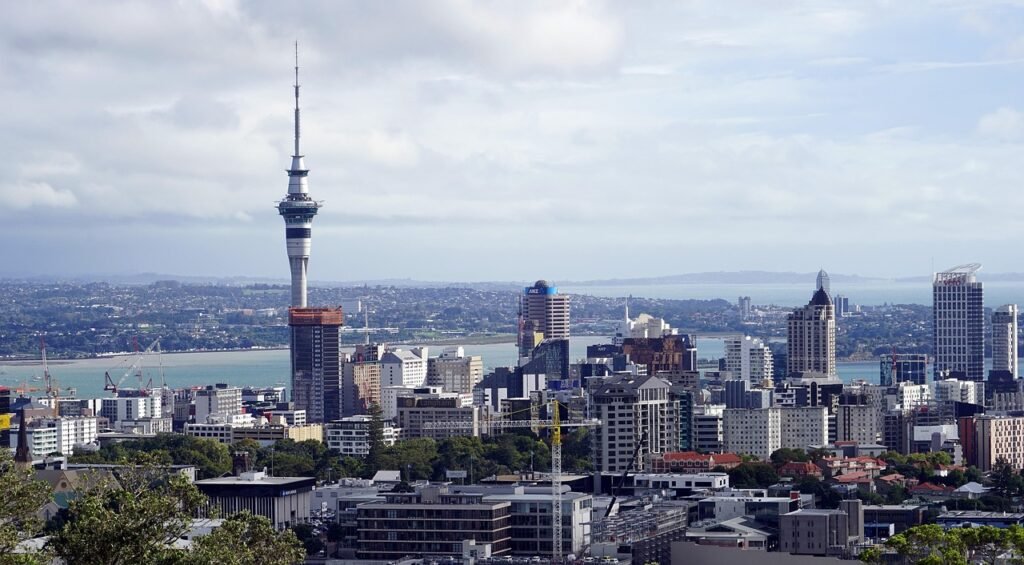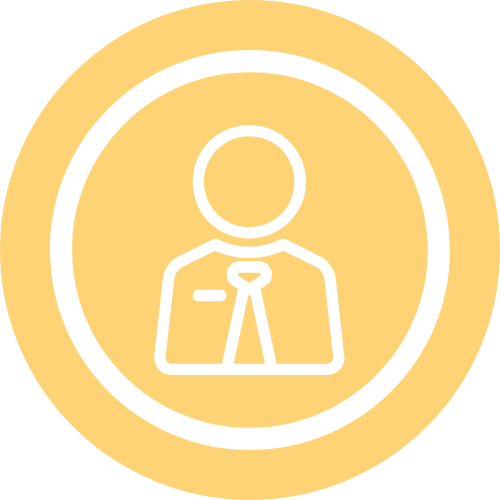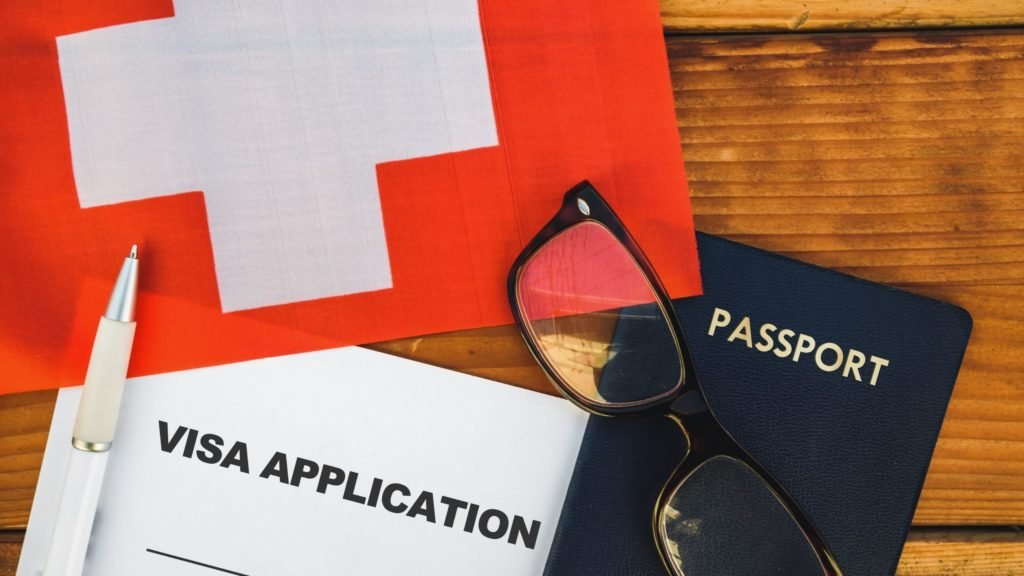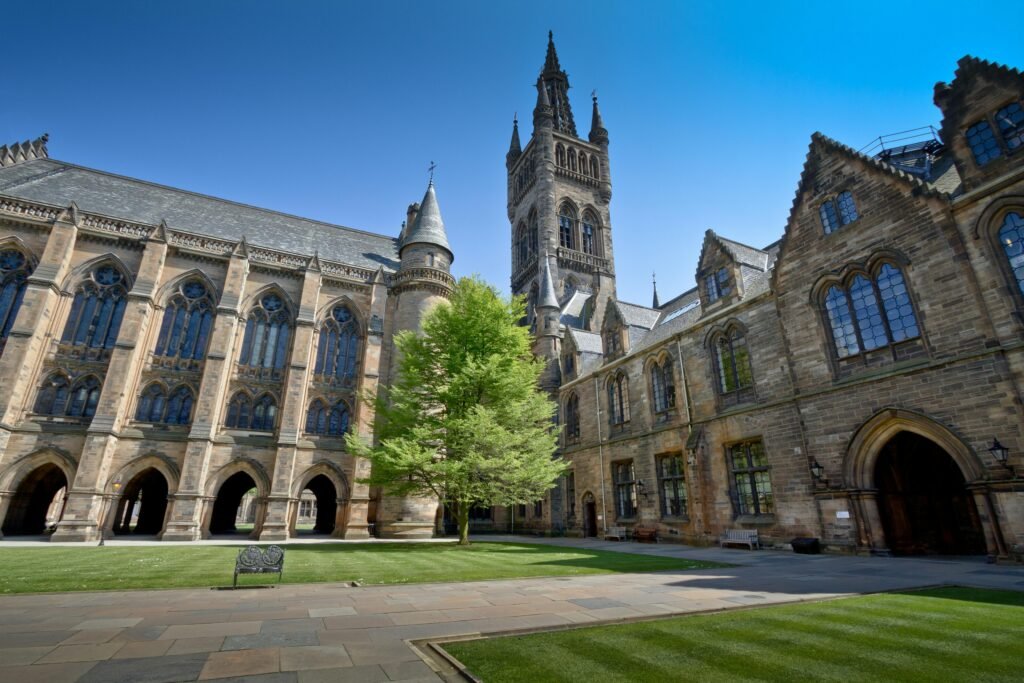Why Study in Switzerland?
Switzerland is an excellent study destination for Bangladeshi students, offering world-class education, globally ranked universities, and strong emphasis on research, innovation, and practical learning. Swiss institutions are known for academic excellence, particularly in fields like engineering, life sciences, hospitality, finance, and international relations. With a multilingual and multicultural environment, students benefit from exposure to global perspectives and professional networks.
Switzerland also offers affordable tuition at public universities, high living standards, and excellent post-study work and research opportunities. Competitive scholarships, such as the Swiss Government Excellence Scholarships and university-specific grants, make studying in Switzerland more accessible for international students.

- Study in
Switzerland
Study Programs in Switzerland
1️⃣ Schooling (Primary & Secondary)
Compulsory education from age 4 to 15, divided into primary and lower secondary levels.
Public schools are free and highly regarded for their quality and inclusiveness.
Instruction is provided in one of the national languages (German, French, Italian, or Romansh), depending on the canton.
Many international schools offer English-medium programs (e.g., IB, British, American curricula), but they charge tuition.
Education emphasizes multilingualism, critical thinking, and personal development.
2️⃣ Bachelor’s Degree
Offered by Swiss public universities (e.g., ETH Zurich, University of Geneva) and Universities of Applied Sciences (UAS).
Most Bachelor’s programs are taught in German, French, or Italian, but a growing number of English-taught options are available, especially in UAS and technical institutions.
Fields include Engineering, Computer Science, Business, Natural Sciences, and Arts.
Duration: Typically 3 years.
ETH Zurich and EPFL are globally ranked institutions with high research output.
3️⃣ Master’s Degree
A wide range of English-taught Master’s programs are available, especially in STEM, Finance, International Relations, Hospitality, and Environmental Studies.
Available at both traditional universities and UAS.
Programs are research-oriented or practice-based, depending on the institution type.
Duration: 1.5 to 2 years.
Strong links with industry and international organizations, especially in Geneva and Zurich.
4️⃣ PhD
Offered mainly by traditional research universities.
PhD candidates are typically employed as junior researchers and receive a salary.
Programs are highly competitive and research-intensive, often conducted in English.
Duration: 3–4 years.
Focus areas include Life Sciences, Engineering, Social Sciences, Climate Research, and Artificial Intelligence, with access to cutting-edge labs and global research networks.

- Study in
Switzerland
Step-by-Step Guide
Step 1: Explore Universities and Programs
Research Swiss public universities (e.g., ETH Zurich, University of Geneva, University of Zurich) and Universities of Applied Sciences (UAS).
Look for programs aligned with your academic goals. Use university websites to explore English-taught Bachelor’s, Master’s, and PhD options.
Step 2: Check Eligibility
For Schooling: Public schools are free for residents; admission may depend on residency status and language proficiency. International schools may require entrance exams or interviews.
For Bachelor’s: HSC or A-Levels equivalent with good grades. Most programs are taught in German/French/Italian, but some UAS offer English-taught programs.
For English-taught programs: IELTS 6.0+ or TOEFL iBT 80+
For Master’s/PhD:
Recognized Bachelor’s or Master’s degree
Competitive GPA (usually CGPA 3.0+ out of 4.0)
English language proficiency: IELTS 6.5+/TOEFL iBT 90+ for English programs
Some programs may require entrance tests, interviews, or supervisor agreement (especially for PhD)
Step 3: Look for Scholarships
Explore funding options such as:
Swiss Government Excellence Scholarships (for Master’s, PhD, and research)
University-specific scholarships (e.g., ETH Excellence Scholarship, UNIL Master’s Grant)
Research fellowships and assistantships (especially at PhD level)
Private or foundation-based scholarships
Step 4: Submit Your Application
Apply directly through the university’s admission portal.
Submit your academic transcripts, motivation letter, CV, proof of language proficiency, references, and research proposal (if applicable).
Step 5: Receive and Accept Offer
If accepted, you’ll receive an admission letter or conditional acceptance.
Accept the offer, pay any required fees (if applicable), and begin the student visa process.
Step 6: Get Health and Travel Insurance
Mandatory for all international students.
You must purchase Swiss-approved health insurance or apply for exemption with equivalent private insurance that meets Swiss regulations.
Step 7: Apply for Student Visa (National D Visa)
Apply for the Swiss National (Type D) Student Visa at the Swiss Embassy or Consulate in your country.
Documents usually include:
Admission letter
Proof of financial means (approx. CHF 21,000/year)
Health insurance
Passport and completed visa forms
Visa processing can take 8–12 weeks, so apply early.
Step 8: Prepare for Travel & Settle In
Book accommodation in advance, preferably student housing or university-arranged options.
On arrival, register your residence at the local canton (commune/municipality office) within 14 days.
Attend student orientation, open a Swiss bank account, and get a local SIM card. Familiarize yourself with local laws, culture, and academic expectations.

- Study in
Switzerland
Explore Our Partner Universities
- Business and Hotel Management School
- Cesar Ritz Colleges
- Culinary Arts Academy (CAA)
- EU Business School Geneva
- EU Business School Montreux
- Glion Institute of Higher Education, Switzerland
- Hotel Institute Montreux (HIM)
- International Management Institute (IMI)
- Les Roches Global Hospitality Education
- Swiss Hotel Management School (SHMS)

- Study in
Switzerland
Average Tuition Fees
Public Schools: Free (for Swiss residents);
International students may be allowed depending on residence status.International Schools:
CHF 15,000 – CHF 35,000 per year (varies by curriculum: IB, British, American, etc.)Bachelor’s Degree:
Public universities charge relatively low fees for all students (regardless of nationality):Approx. CHF 500 – CHF 2,000 per year
Master’s Degree:
Approx. CHF 1,000 – CHF 2,500 per year, depending on the institution and program
PhD:
Usually fully funded through salaried research positions
PhD candidates often earn CHF 45,000 – CHF 60,000/year as junior researchers
General Eligibility (Higher Study)
Bachelor’s:
Higher Secondary Certificate (HSC) / A Level equivalent
Strong academic performance
Language proficiency:
For English-taught programs: IELTS 6.0+, TOEFL iBT 80+
For French/German/Italian-taught programs: Appropriate language certification (e.g., DELF, TestDaF)
Master’s:
Recognized Bachelor’s degree in a related field
Competitive GPA (minimum 2.75–3.0 out of 4.0; may vary by program)
English proficiency: IELTS 6.5+, TOEFL iBT 90+
May require additional documents like motivation letter, academic references, or relevant work experience
PhD:
Master’s degree in a relevant discipline
Strong research proposal aligned with faculty expertise
Supervisor agreement required before formal admission
May also need to submit CV, previous publications, and academic recommendation letters

Job and PR Pathways After Study
The Swiss education system offers excellent post-study opportunities for international graduates, especially in fields like engineering, finance, IT, and life sciences. With the right planning, you can smoothly transition from a student visa to work authorization and eventually permanent residency.
Post-Graduation Work Permit (L Permit Extension) – After graduation, international students can apply for an L permit extension (up to 6 to 12 months) to stay in Switzerland while looking for a job relevant to their field of study.
B Permit (Residence Permit for Employment) – Once you secure a job offer, you can apply for a B permit which allows you to live and work in Switzerland. Employers typically sponsor your work permit, especially in shortage occupations.
Career Support and Job Readiness – Universities offer career services that assist with CV writing (aligned to Swiss standards), interview preparation, and connecting you with local employers and internships.
Permanent Residency (C Permit) and Long-term Planning – After residing in Switzerland continuously for 5–10 years (depending on canton), you can apply for a C permit (permanent residency), which grants more rights and freedom of movement. Expert advice can help you plan your integration, language learning, and employment path to meet these requirements.
Our Support During the Process
We’re with you every step of the way—from your first consultation to settling into life in Switzerland and beyond. Our mission is to make your study abroad journey smooth, informed, and successful.
Personalized consultation at every step – We take the time to understand your academic background, career goals, and financial situation to recommend the most suitable Swiss universities and programs.
One-on-one support for admission, visa & travel – Receive dedicated assistance with university applications, document preparation, student visa submission, and travel planning, including insurance and accommodation advice.
Always accessible—call, WhatsApp, or visit us – Our experienced advisors are available through your preferred communication channels to assist you throughout your journey.
Regular updates, reminders & document reviews – Stay on track with timely reminders, personalized checklists, and detailed reviews of every required document to avoid delays or rejections.
Post-arrival check-ins & alumni connections – We stay connected after your arrival in Switzerland, offering guidance during your initial settlement and connecting you with successful alumni for peer mentoring and insights.
Support for job search and residency planning – After graduation, we help you navigate the Swiss job market, build your resume, and plan for work permits or long-term residency (C Permit) in Switzerland.
Visa Categories for Study in Switzerland

Schengen Visa (Type C) – Short-Term Study Visa

Short-Stay Schengen Visa (Type C)

Post-Study Work Possibility

Visa Application Checklist
Personal & Identification Documents
- Valid Passport: Must be valid for at least 6 months beyond your intended stay.
- National ID Card (NID): If applicable.
- Passport-sized Photographs: Recent photos meeting visa specifications.
- Marriage or Divorce Certificate: If applicable, to verify marital status.
Academic & English Language Proficiency
- Academic Certificates & Transcripts: Including degrees, diplomas, and relevant qualifications.
- Letters of Recommendation: From academic or professional referees.
- Curriculum Vitae (CV)/Resume: Detailing academic and work history.
- Portfolio: Required for courses in creative fields like design or architecture.
- English Language Test Results: Valid scores from accepted tests such as IELTS, TOEFL iBT, PTE Academic, CAE, or OET.
Course Enrollment & Intent
- Academic Certificates & Transcripts: Including degrees, diplomas, and relevant qualifications.
- Letters of Recommendation: From academic or professional referees.
- Curriculum Vitae (CV)/Resume: Detailing academic and work history.
- Portfolio: Required for courses in creative fields like design or architecture.
- English Language Test Results: Valid scores from accepted tests such as IELTS, TOEFL iBT, PTE Academic, CAE, or OET.
Financial Evidence
- Proof of Financial Capacity: Demonstrating access to at least AUD 29,710 to cover tuition, living expenses, and travel.
- Bank Statements: Recent statements showing sufficient funds.
- Fixed Deposits (FDRs) or Deposit Pension Schemes (DPS): If applicable.
- Sponsorship Letter: If someone else is funding your studies, include a letter detailing the sponsorship.
Health & Character Requirements
- Overseas Student Health Cover (OSHC): Mandatory health insurance for the duration of your stay.
- Tuberculosis (TB) Test Results: If required based on your country of residence.
- Police Clearance Certificate: To demonstrate good character.
For Applicants Under 18
- Parental Consent Form: Completed by parents or legal guardians.
- Custody Documents: If applicable, provide evidence of sole custody or guardianship.
Visa Application Process
Biometric Information
Schedule an appointment with VFS Global or the Swiss Embassy/Consulate in your country for biometric data collection and document submission as part of the visa application process.
Travel Itinerary
Prepare a tentative plan of your travel dates, flight booking, accommodation, and expected arrival in Switzerland. This is required as part of the visa documentation.
Visa Application Submission
Apply for a Swiss National (Type D) Student Visa at the Swiss Embassy or Consulate in your home country.
You must submit all required documents, including the university admission letter, proof of financial means, and health insurance.
Note: Switzerland does not have a centralized online application system—you must apply through the respective embassy/consulate.
Visa Application Fee
Approx. CHF 88 – CHF 100 (equivalent to EUR 85 – EUR 100), depending on the location and currency exchange rates – subject to change annually.
Processing Times
Standard Processing:
Student visa applications for Switzerland typically take 6 to 12 weeks to process after submission to the Swiss Embassy or Consulate. Processing times vary by country and embassy workload.
Extended Processing (if additional checks or documents are required):
Processing may take longer—up to 3 months or more—depending on individual circumstances, background verification, or cantonal approval delays.



